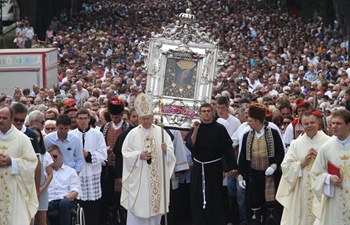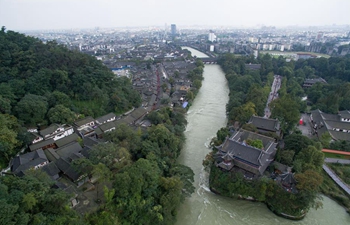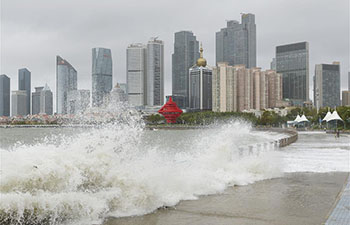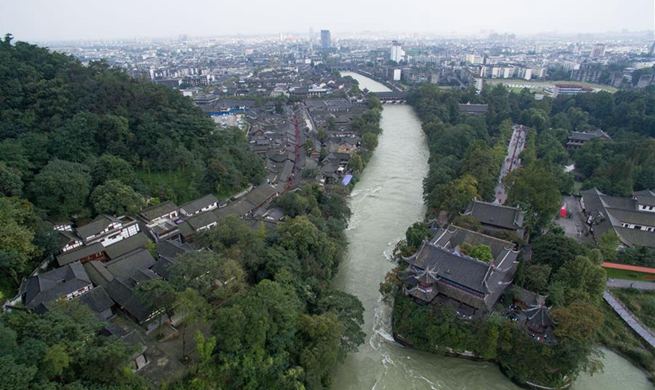ROME, Aug. 15 (Xinhua) -- The Aquarius, the migrant rescue ship that has twice been at the center of Italy's new closed-door anti-migration policies, landed in Malta Wednesday after a deal was struck to assure the safety of 141 migrants on board.
Both Italy and Malta at first refused to give safe harbor to the migrants, who were picked up last week. But Malta agreed on Tuesday to process migrants after France, Germany, Luxembourg, Portugal, and Spain agreed to find homes for them.
Analysts said that Italy's refusal to compromise on the fate of the rescued Africans has solidified the country's role as the most hardline member of the European Union (EU) when it comes to migrant-related issues.
Matteo Salvini, the head of the anti-migrant League party as well as Italy's interior minister, is the architect of Italy's strict policy on migrants.
With the Aquarius at sea with the migrants aboard Monday, Salvini doubled down on his position, replying to a question about the vessel by saying the ship "can go anywhere it wants, but not to Italy."
"In some way every (EU) country has shown a willingness to compromise, except for Italy," Gian Franco Gallo, a political affairs analyst, told Xinhua. "Salvini no doubt sees it as a matter of his political survival. He has made such a name for himself as an anti-migrant crusader that his supporters would think he was weak if he backed down."
Salvini and the government of Prime Minister Giuseppe Conte first earned worldwide headlines just days after taking office on June 1, when they refused to allow the Aquarius, which had docked in Italy multiple times before then, to sail into an Italian port. After being adrift for days, Spain finally allowed the ship to land in the Port of Valencia.
After a series of repairs and updates, the ship set sail again this month, setting up the latest showdown with the Italian government.
For their part, the SOS Mediterranee and Doctors Without Borders, the two non-governmental organizations supporting the Aquarius, insist they were not looking to provoke the Italian government.
"We are not interested in playing political games, we are just trying to save lives," Claudia Lodesani, head of Doctors Without Borders-Italy, said in a media briefing the day after the ship set sail the second time. "We give no thought to the political impacts of what we do."
Leaders from other European countries have said they would lobby Italy to play a bigger role in confronting the high-profile migrant crisis. Over the last three years, Italy has seen many migrant arrivals due in part to geography that places the southern part of the country within easy sailing distance of Libya in northern Africa.
But the number of overall migrant arrivals have trailed off dramatically since last year, as Italy helped equip, train, and fund the Libyan coast guard. Over the first six months of this year, nearly 45,000 migrants arrived in Europe, compared to nearly 95,000 over the same period last year, according to figures from the UN migration agency IOM.
Around 38 percent of those arriving in Europe landed in Italian ports in the first six months of this year compared to 83 percent a year earlier. Arrivals in Italy have been much lower since mid-year, with the new government in power.













